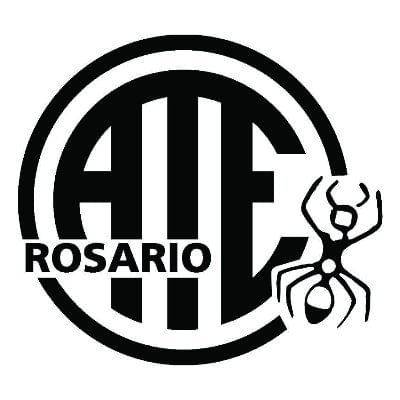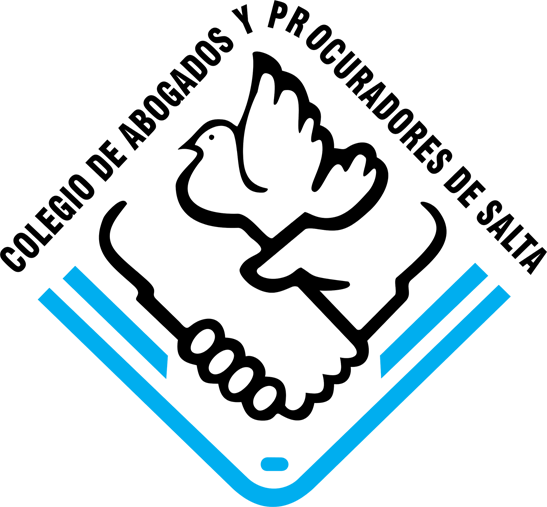Comprando este libro en Pre-Venta,
Disponible a partir de 5/11/2020
Disponible a partir de 5/11/2020
ANIMAL FARM - WORDSWORTH CLASSICS - GEORGE ORWELL
Libro
| Editorial | Wordsworth |
|---|---|
| Edad | Adultos |
| Idioma | Inglés Internacional |
| Nivel | . |
| Autor | ORWELL GEORGE |
| ISBN | 9781840228038 |
| Peso ( kg ) | 0,171 |
| Tipo | Soporte Físico |
| Año de edición | 2021 |
| Formato | Tapa rustica |
| Sinopsis | ANIMAL FARM - WORDSWORTH CLASSICS With an Introduction and Notes by Dr Andrew Palmer, Principal Lecturer in Modern Literature, Canterbury Christ Church University ALL ANIMALS ARE EQUAL BUT SOME ANIMALS ARE MORE EQUAL THAN OTHERS In 1943, there was an urgent need for Animal Farm. The Soviet Union had become Britain's ally in the war against Nazi Germany, and criticism of Stalin's brutal regime was either censored or discouraged. In any case, many intellectuals on the left still celebrated the Soviet Union, claiming that the terrors of its show trials, summary executions and secret police were either exaggerated or necessary. But, to Orwell, Stalin was always a "disgusting murderer" and he wanted to remind people of this fact in a powerful and memorable way. But how to do it? A political essay would never reach a wide enough audience; a traditional novel would take too long to write. Orwell hit on the inspired idea of combining the moralism of the traditional 'beast fable' with the satire of Gulliver's Travels. A group of farmyard animals, led by the pigs, overthrow their human masters. Their revolution is inspired by high ideals: the farm will be run in the interests of its animals with no more slaughtering, plenty of food for all and comfort in retirement. But when Napoleon the pig takes command, he quickly corrupts their principles, creating a new tyranny worse than the old. Orwell wrote Animal Farm in the middle of the Second World War, but at first no publishers wanted to touch it. It was finally published in August 1945, once the war was over. This little book quickly became a seminal text in the emerging 'cold war' a phrase that Orwell himself coined . It also became a site of that conflict itself, suffering various attempts to subvert or change its meaning. Today, Animal Farm remains a powerful fable about the nature of tyranny and corruption which applies for all ages. GEORGE ORWELL Eric Blair George Orwell as he was to become when a published writer was a child of the Empire, born in Bengal, India, on June 25, 1903, the second child of Richard and Ida Blair. Richard was a civil servant in the Opium Department the trade between India and China having been legalised under British rule . In 1904, his wife Ida, 18 years his junior, took the baby Eric and his older sister Marjorie back to England to live. Richard visited on leave only once, for 3 months in 1907, the point when Eric's younger sister Avril was conceived. He retired back to England in 1911, the same year in which the eight-year-old Eric was sent to boarding school. Eric's formative early years were thus spent entirely in his father's absence. Eric Blair's time at his preparatory school, St. Cyprian's, is recalled in his brief memoir, 'Such, such were the joys' 1947 1952 , a coruscating account of the 'desolate loneliness and helplessness' he felt there, though he also cautions, 'Whoever writes about his childhood must beware of exaggeration and self-pity'. From there he won places at both Eton and Wellington, and after a term at Wellington he took up a scholarship at Eton. He was by his own account reasonably happy there; a school built on and for privilege, it could also accommodate the contrarian. His biographer Bernard Crick notes of his lack of academic prowess at Eton, 'There was no denying that it had been an undistinguished career.' But it gave him an unrivalled understanding of the class system which would become one of his central subjects. And it was there, as he tells us in 'Why I Write' 1946 , that he discovered a joy in words for their own sake. On leaving school in 1921, Eric initially chose to follow his father and grandfather into the Indian service, taking the India Office examinations for entry into the Indian Imperial Police Force as well as academic exams, there was a practical test in horse-riding . In 1922, aged 19, he headed to Burma to join the forces of imperialism. His iconic essays, 'A Hanging' 1931, written still under his own name and 'Shooting an Elephant' 1936 , describe in retrospect pivotal events during his time in Burma. His first novel, Burmese Days, published under his new pseudonym George Orwell, likewise draws heavily on his experience there. Reading these works will give a good enough explanation of why, when home on leave in 1927, Blair resigned from the Service, without giving a reason. He had come to the point where he could no longer subscribe to the imperialism he was serving. This decision marks a key moment of change in Eric Blair's life. He says in 'Why I Write', 'From a very early age, perhaps the age of five or six, I knew that when I grew up I should be a writer'. Now he moved to London and began to write. The key stages of his life are marked by key publications. Orwell was always engaged in a mass of journalism and reviewing. Seeing Things As They Are: Selected Journalism reflects that large body of work. The principal works now begin to be written, with the essay 'A Hanging', published in the periodical Adelphi, announcing his characteristic style and concerns. His first major work was Down and Out in Paris and London 1933 , reflecting his own immersion in the life of the poor and dispossessed in those two cities. He found it difficult to place with a publisher, but through Leonard Moore, who would be his lifelong agent, he found a publisher in Victor Gollancz. Down and Out has become a classic. Writing directly from experience was to be a fundamental method, and possibly because of the autobiographical nature of this early work, Eric Blair now chose to take the pseudonym George Orwell - the name by which we think of him. A change of name, a change of identity, a move away from identification with a past that included Eton and Empire and towards a future investigating, and sometimes occupying, the place of the working class, the poor, the oppressed, the overlooked. There would be many other subjects too, but from now on Orwell's writing and indeed his life had a deeply political dimension. Orwell had also been experimenting with fiction, and his first novel, Burmese Days followed in 1934; A Clergyman's Daughter in 1935; and Keep the Aspidistra Flying in 1936. Then came a further breakthrough when Gollancz commissioned Orwell who had been supporting himself through teaching and then bookselling to write about working-class conditions in the North of England, on the model of Down and Out. The result was another classic, The Road to Wigan Pier 1937 , again demonstrating his forte in political writing informed by lived experience. Lodging in working-class houses, observing closely housing conditions, going down a mine, living in both Wigan and Barnsley, he turned his shock at the poverty of people's lives into a polemical documentary account that has remained original in form and content. It ends with Orwell's political commitment: 'There is no chance of righting the conditions I have described, or of saving England from Fascism, unless we can bring an effective Socialist party into existence'. Immediately after his months spent in the North, he married Eileen O'Shaughnessy in June 1936, and in December he was off again to Spain, carrying his commitment to Socialism to sacrificial lengths, and embroiling himself in the internal conflicts of the various forces of the left fighting for Republicanism. He was wounded in the throat in action, and narrowly escaped imprisonment. His experiences there issued in Homage to Catalonia 1938 , and a number of significant essays. 1938 was also the year in which Orwell's tuberculosis began to impair him seriously. He was confined to a sanatorium for six months. On convalescence with Eileen in Morocco, Orwell began to write his fourth novel, Coming Up for Air 1939 . Though Orwell's chronic chest weakness disqualified him from military service in the Second World War, he kept trying to enlist; the best he could do was to join the Home Guard in 1940. If he couldn't fight, he could write: The Lion and the Unicorn 1941 was a reflection on his own form of patriotic Socialism. In 1941 he joined the BBC as a Talks Producer in the Empire Department, broadcasting largely to India and South-East Asia, all the while continuing with his prodigious output of journalism, reviewing, and essays, including the important 'Looking Back on the Spanish War' 1942 . He left the BBC in 1943 and became literary editor of the left-wing journal Tribune, to which he made many contributions himself. At the very same time he was writing Animal Farm, and also thinking ahead to Nineteen Eighty-Four. Animal Farm was written at speed, and completed by February 1944, but publishers looked askance at a book which seemed to be an attack on the USSR, still an ally in the war. His usual publisher Gollancz refused it, as did others. Eventually it was accepted by Frederick Warburg and published in 1945. It was an immediate success and has never been out of print. If Orwell's life seems dominated by writing, in his personal life the major event of 1944 was that he and Eileen adopted a baby son, Richard. In March 1945 he went off as a war correspondent for the Observer, apparently unconcerned by the fact that Eileen was ill. While he was in Germany, Eileen died during what he had thought was a routine operation - in fact a hysterectomy to remove multiple tumours. Richard was now in his sole care. His first response to this was to ask several women to marry him, but he then settled to the responsibilities of fatherhood in what was to be the last phase of his life. He employed Susan Watson to care for Richard and to some extent himself , in London, then in the remote island of Jura, at Barnhill, a tenancy acquired through the good auspices of David Astor, where his sister Avril joined him. Many have wondered why Orwell chose such an apparently inhospitable spot, but his Domestic Diary reflects his real happiness there; and it was where he wrote his most important novel, Nineteen Eighty-Four. Between 1946 and 1948, with a seven-month interval in a sanatorium to combat his ever more virulent tuberculosis, Orwell drove himself to finish his visionary 'novel about the future', typing the revisions and the final typescript himself in the absence of secretarial help, an act which probably hastened his death. As soon as it was finished, he again entered a sanatorium. Nineteen Eighty-Four was published in 1949; its publisher Warburg described it as 'amongst the most terrifying books I have read'. It has had a fertile and influential life beyond its author's death. Orwell moved to University College Hospital in London in September 1949. He married Sonia Brownell the following month; both knew how gravely ill he was. Plans were under way to go to a sanatorium in Switzerland when he died from a lung haemorrhage in January 1950. His son Richard was brought up by his aunt Avril, and has been a voice for his father's life and work into the 21st century. Edad: adultos ORWELL GEORGE George Orwell, seudónimo de Eric Arthur Blair, nació el 25 de junio de 1903 en Motihari, India británica, y murió el 21 de enero de 1950 en Londres. Fue un escritor, periodista y ensayista británico, conocido por sus obras de crítica social y política. Estudió en Eton College y trabajó en la Policía Imperial Británica en Birmania, experiencia que inspiró su novela "Días en Birmania". Vivió en París y Londres, donde experimentó la pobreza, lo que reflejó en "Sin blanca en París y Londres". Participó en la Guerra Civil Española como voluntario del bando republicano, experiencia que plasmó en "Homenaje a Cataluña". Durante la Segunda Guerra Mundial trabajó en la BBC y colaboró con medios como Tribune y The Observer. Sus obras más influyentes son "Rebelión en la granja" y "1984", ambas críticas al totalitarismo y a los mecanismos de control político y social. |
| Cantidad de páginas | 256 |
| Fecha Ingreso | 09-01-2026 |
E-Licencia
| Duración | . |
|---|
Brindes para este produto:








































